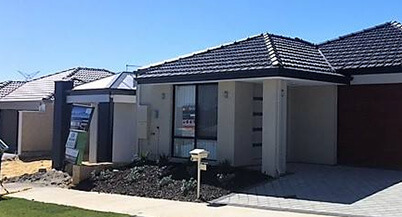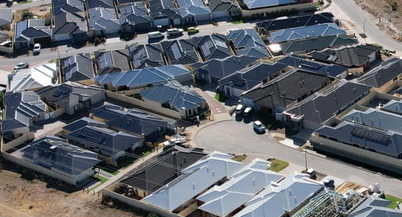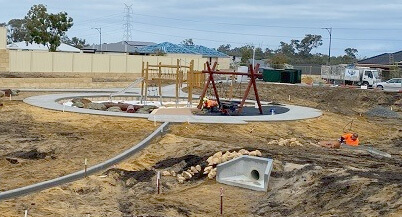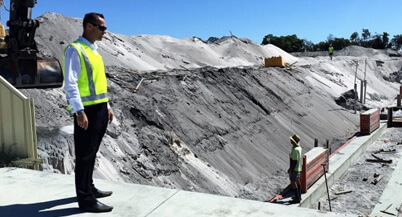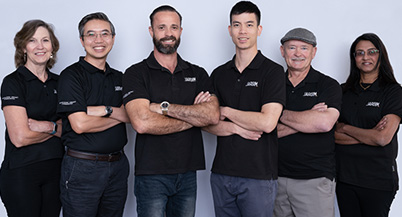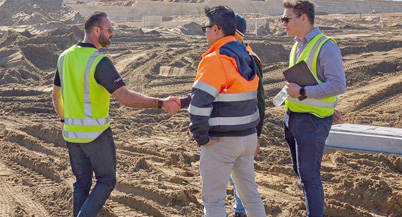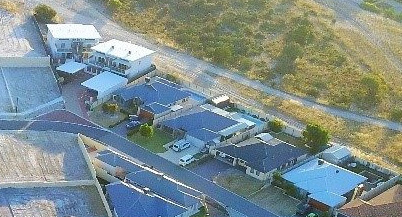10 Steps to becoming a Property Developer…..

- Location, Is it really that Important?
Everyone you speak to thinks they know what location means when it comes to property development but I quickly realised that wasn’t so much the case. A good location doesn’t mean it has to be in the best area because you’ll be paying top price and then that strips your profit margin. A good location is one that’s on the borders of a good area that in time will merge with it.
Being near schools, public transport and open spaces are essential points when selling a property but being on the best street in the suburb isn’t. Your top developers in the world specialise in buying where the majority of buyers would consider as the worst possible locations, when actually they are the best for developing property and making a ton of profit.
- The profit is in the Purchase!
You make money when you buy a property rather than when you sell it. Thus, it is essential to pay the right price for a property. Every $$$$$ you can knock off the asking price is profit straight into your pocket. By paying top dollar even though you feel it’s a great location and a great opportunity, you won’t be making the maximum profit and could be working on very slim margins.
I recommend looking out for properties that have planning applications in with the local authority or actual suburbs that are having rezoning conducted. Sellers might accept a good offer subject to planning permission, or you could pick one up for a song and develop a short time later, simply because you did your research and knew what was happening in the area.
- First Call, Second Call, Third Call… SOLD!
Buying at an auction is a good way to pick up a bargain, provided you don’t get carried away with the emotion of the auction itself. Set yourself a limit and stick to it and don’t get carried away with winning at any cost. An auction is like a game of poker, only in this case, you can see everyone’s hand before you place a bet.
Don’t even bid until you have seen what everyone else is doing and put your first bid in at going twice. Only the last bidder ever wins at an auction. If the bidding doesn’t reach the reserve price, try and negotiate with the seller afterwards. The property wouldn’t be at an auction in the first place if they weren’t very keen to sell.
- Research, Research and more Research
Property development is a risky business. You could make a fortune, or you could lose everything and end up in debt for the rest your life. You have to do your research thoroughly before you buy. Find out how much other properties go for in that area, how much stamp duty, searches and fees will be. When you have done your sums, work out exactly who you will be trying to sell to, how much you will realistically get and whether the profit margin is worthwhile. Property development is very capital intensive and you have to get your sums right. If it was easy, we would all be millionaires.
I use a format known as reverse engineering! So literally I work backwards with my needs. If the numbers don’t stack up, I move on to the next one.
- The right seller
When you are looking to buy a property you need to find a motivated seller, someone who will give you a good price because they really need to sell. Real estate agents will have background information about why someone is selling. Anyone moving abroad, getting divorced or going bankrupt will need a quick sale, which is when you will get a good price. Gumtree is a great source for motivated sellers often trying to sell the property themselves. Remember, the more desperate they are, the better deal you will get.
- Target the ideal buyer
Always have in mind who you are aiming to sell to once you have finished your development. Get the right product to match the market: if you plan to rent or sell to first home buyers on low income, there is no point in spending a fortune on the highest quality fittings, but if your targets are professional couples and working adults it may suit their expectations. If it is a family home, think about the décor. And importantly, it isn’t about your taste, it is about what would appeal to the type of person who is going to buy it.
- Keep looking
Don’t jump at the first opportunity that arises, get in your car and drive around. Lots of properties ripe for development can be found just by driving around. If they are vacant or rental properties you can always check with council or the property manager in hope of tracking down the land owner.
- Amateurs mistakes made that you need to avoid
Remember, property developing isn’t like following a recipe straight out of cook book. book. It’s much, much more complex and risky, and if you get it wrong, it could potentially leave you broke for the rest of your life, or even bankrupt. Dabble in this game at your peril.
Everyone seems to think they are property developers these days just because their house has (until the last few years) gone up almost automatically in value in a rising market. My advice – get real. Property developing means adding value and developing value, not just sitting back and waiting for the market to rise. There are so many pitfalls.
- Don’t pay over the odds and think you will make it back in the long run
I’ve said it before and I’ll say it again – you make your money on the BUYING end, not when you sell. Always protect yourself against the downside, which means, in a worst case scenario, can you still come out with the shirt on your back? If not, stay away. Someone once said to me, “You never regret the deals that you don’t do”. And they are right. There are always better deals just around the corner, so never be in a rush to buy. In property, if you get it wrong, it becomes a headache and a money pit that can last for years.
Avoid buying anything with structural issues, asbestos unless of course you instead to demolish and remove all debris before proceeding.
Loads of property experts bang on about adding value, but the truth is there’s a limit to how much value you can add to a property with a refurbishment. And because you can never know what will happen to your development, or the market, in the months it takes you to get your property back in estate agents’ windows, it’s imperative that you build in your best chance of making a profit by buying below the market price in the first place.
The way to swing things in your favour is to find someone who needs to sell more than you need to buy. One of the most valuable lessons I have ever learnt is to be always on the look out for a motivated seller. Typically, motivated sellers are people going through divorces, people in financial difficulties, or the families of the recently deceased, who want a quick and painless sale.
Whatever your situation, the fact is, if you can find a motivated seller, you can usually find a bargain. And the more motivated the seller, the better the price – and every dollar saved at the front end is money in your pocket at the back end.
- Watch the market
Ultimately, the property market depends on five key criteria – interest rates, low or high unemployment, low inflation, supply and demand, and the very important ‘feel good factor’. The market is starting to move again and all the property sectors (rental, construction, apartments and land sales) are experiencing a rise in market confidence and demand. Therefore now is a perfect time to get started!!
If your considering developing your property or know of a property that can be developed but would prefer a bit of hand holding along the way, then please feel free to contact our office and we’d be more than happy to meet with you and discuss further.



